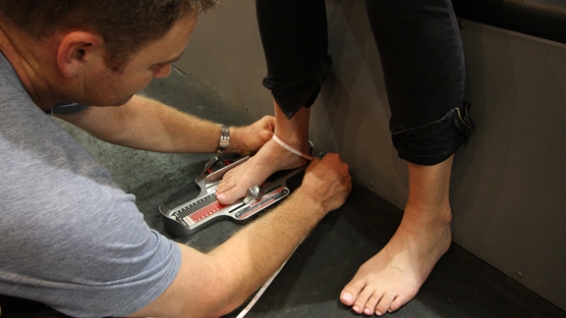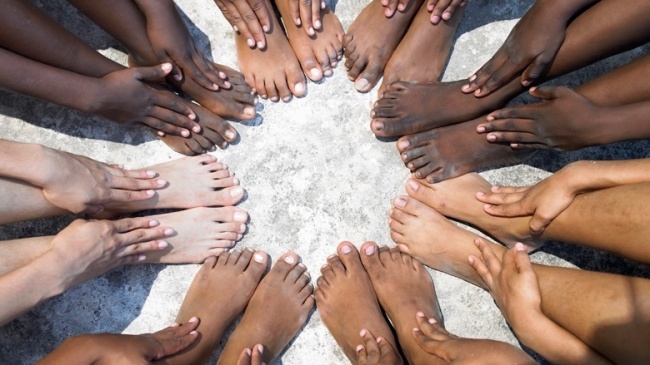Equality for all is not my ultimate goal for our health care system. You’re probably wondering what the hell I am talking about right now, but let me explain.
What I want for our health care system is equity. What does that mean? Let’s look to an analogy first given to me by a great friend and social justice advocate, Noel Gordon. Of course, this was a while ago, so I may put a little twist on it, but the point should be the same.
In an equal world, equality is giving all the barefoot people in the world a pair of shoes. The White people, the Black people, the Asian people, the men, the women, the children, the teenagers, the adults, the elderly, everyone- all get a pair of shoes from some company. Sounds great, right? That company just eradicated the problem of bare-footedness. Well, unfortunately, equality means that all of these people get the same size shoe, because that is the equal way to distribute them. For some people, the pair of shoes fit, but for many, they are still left with no shoes.
Now let’s look to what equity means.
In an equitable world, a representative from the company goes around and measures (or at least asks) everyone’s shoe size. Then this person reports back to the company, orders the appropriate amount of each respectable size, and delivers them to the people. Now everyone has a pair of shoes, but more importantly, those shoes were customized to fit a specific person.
Differencebetween.net has a great quote on the difference between these two very similar-looking words: “When we say equity, we refer to the qualities of justness, fairness, impartiality and even handedness. When we talk about equality, we are talking about equal sharing and exact division.”
So how does this relate to health care?
If health care providers (HCPs) gave equal care to everyone, I believe that the system would fail. Maybe not critically fail, but it would be far from perfect. We are not all the same, we are not robots or cars, and doctors should not use a check-box system to deal with our ailments. We all have a unique background, whether it may stem from our race/ethnicity, our gender, our sexual orientation, or any other identity we may possess. We should be treated in an equitable manner that takes into account the person we are, not just the shell of a body we live in.
Why isn’t this system in place now? It takes extra time, resources, and compassion; 3 areas in which the health care system is pretty consistently losing ground. The amount of time that doctors have per patient is going down, resources are being conserved as the government is sequestering money away from the health systems while the price of medical technology is still sky high, and as a result of all of this, and in my personal experience, doctors simply don’t have the time to be compassionate to all of their patients. They don’t have time to ‘measure their feet’ to refer back to the previous analogy. And what it leads to is a system where equality still does not even exist, let alone equity among and between certain groups.
How do we fix this? To be honest, I don’t know the mechanism. I am not in the shoes of the HCP yet, and I have little experience on the front lines of health care. What I know that we (future HCPs) can do is learn about different social groups- what are the unique health care needs of African Americans? Members of the LGBT+ community? Other marginalized groups? I will tell you that these groups have special needs that HCPs should consider if their goal is to provide comprehensive and quality care.
Educate yourself. Take a class on health care disparities or cultural competency, talk to your friends with different identities than you, talk to an HCP about their experiences serving diverse populations. These conversations and experiences will mean more in terms of achieving your future goals than biochemistry, physics, and genetics combined. Even the Medical College Admissions Test (MCAT) is starting to realize this, and their test is changing to follow suit.
Of course I may be acting naïve in assuming that your goals are similar to mine- that everyone should have access to a health care system that cares about them as an individual person, not as a member of some predetermined group. Call me a dreamer, but I think that we are about to train a new generation of HCPs who are much more appreciative and understanding of the diversity in the world.
Do I think this process will be easy? Hell no, it’s going to be one of the hardest paradigm shifts that health care has ever seen. But as the Chinese philosopher Lao-tzu once wrote, “A journey of a thousand miles begins with a single step”.
Take the first step. Remember to measure their feet. Give them the right size shoe.
Looking toward the future,
Adam
Top photo from: www.boardworld.com.au
Bottom photo from: http://www.ford.ie


